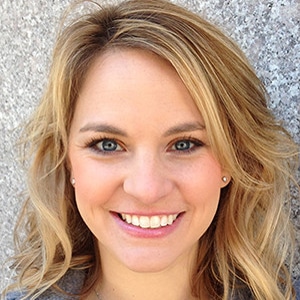PLAY THERAPY 101: FOUNDATIONS OF PLAY THERAPY. SEMINAL THEORIES AND APPLICATIONS. Virtual Workshop

Andrea Driggs, LCSW, RPT-S
Program Goals
This workshop is designed to provide a basic understanding of the historical development of play therapy as a legitimate therapeutic approach, describing the major theories of play therapy, and Axline’s foundational principles of child-centered play therapy. This workshop will then demonstrate how directive and nondirective approaches in play therapy can be used separately or in unison and participants will have experiential opportunities to practice several play therapy principles and approaches. In addition, information will be provided on how play therapy strategies can be utilized to promote and advance therapeutic goals when working with a range of behavioral problems and concerns.. Specifically, this program will:
- Define play therapy and provide curative aspects of play;
- Provide theoretical frameworks for the practice of play therapy;
- Discuss a contextual approach for providing play therapy;
- Differentiate between directive and nondirective play therapy approaches and discuss an integrative approach;
- Describe Axline’s basic principles of play therapy;
- Provide guidelines for the active observation, documentation, and processing of play metaphors, symbols, and activities;
- Offer a rationale for the integration of expressive therapies and cognitive behavioral strategies;
- Offer opportunities for consultation of specific clinical questions utilizing verbal, audio, or video case presentations.
Program Schedule
The daily schedule will consist of didactic presentations, experiential work, clinical case presentations, and group work to process specific clinical presentations of play therapy.
This course is presented in two full-days (5 hours each day).
Day One
9:00 – 9:30 Introductions and needs assessment: Participant’s “wish list”
9:30 -10:45 Didactic information will be provided on the definition of play therapy, curative aspects of play, major theories of play therapy (psychoanalytic, humanistic, behavioral, developmental, client-centered, and mention of others such as Gestalt, filial, etc)
10:45 -11:00 Break
11:00 -12:00 Review of videotapes illustrating play therapy models Child-centered play therapy Developmental play therapy
12:00 - 1:00 LUNCH
1:00 - 2:30 Discussion of Axline’s principles of child-centered play; Experiential exercise
2:30 - 2:45 BREAK
2:45 - 4:30 Continuation of Axline’s basic principles of nondirective play therapy and the benefits of nondirective play
Day Two
9:00 – 10:30 Directive play therapy techniques: When therapists set the agenda Experiential exercise
10:30- 10:45 BREAK
10:45-12:00 Identifying play themes in assessment and treatment planning Discussion of gender, culture, and age issues
12:00 - 1:00 LUNCH
1:00 - 2:30 Setting up a play therapy office: Suggested toys for symbolic utilization
2:30 - 2:45 BREAK
2:45 - 4:30 Questions and answers
References
Landreth, G. (1991). Play Therapy: The are of the relationship. Muncie, IN: Accelerated Development.
Schaefer, C.E., & Drewes, A.A. (Eds.). (2014). The therapeutic powers of play: 20 core agents of change. Hoboken, NJ: Wiley.
Drewes, A.A. (2011). Integrating plat therapy theories into practice. In A.A. Drewes, S.C. Bratton, & C. Schaefer (Eds.), Integrative play therapy. Hoboken, NJ: Wiley.
Gil, E. (2010). Working with children to heal interpersonal trauma: The powers of play.New York: Guilford Press.
Course Objectives
By the end of the course participants will be able to:
- List two major theories of play therapy;
- List four of Axline’s basic principles of play therapy;
- Define play therapy and differentiate from generic play;
- Describe a rationale for the integration of play therapy and other expressive techniques with cognitive behavioral strategies;
- Describe three specific play therapy techniques to be utilized for assessment;
- Compile an example of how specific therapy goals can be advanced through the use of play therapy;
- List two benefits of play therapy;
- Describe two ways to involve the family in play therapy;
- Discuss the difference between directive and non directive play therapy approaches;
- Apply basic play therapy strategies to client sessions.
General Course Information
This course is limited to 20 participants and is designed to facilitate experiential work, group discussion, and processing of clinical material. Participants will have ample opportunity to discuss their specific needs and clinical questions. Participant feedback will be sought out throughout the day.
Clinical case discussions will adhere to HIPPA regulations regarding client confidentiality.
Target audience is Mental Health Professionals: Social Workers, Psychologists, LPCs, and Licensed Marriage and Family Therapists
The program is Beginning Level
This event is sponsored by Starbright Training Institute. Starbright Training Institute is approved by the Association for Play Therapy to offer continuing education specific to play therapy (APT Provider No. 96-029).
For information about continuing education credit, fees, and deadlines for cancellations/refunds, please see https://starbrighttraininginstitute.com/. It is the participant's responsibility to check with their individual state boards to verify CE requirements for their state.
Myriam Goldin, LCSW; RPT-S, is Director of Starbright Training Institute. Phone: 703-980-2886. Email: starbright.inst@outlook.com Web Page: starbrighttraininginstitute.com
Grievance Policy
Starbright Training Institute seeks to ensure equitable treatment of every person and to make every attempt to resolve grievances in a fair manner. Please submit a written grievance to: Myriam Goldin, LCSW; RPT-S, Director of Starbright Training Institute. Phone: 703-980-2886. Email: starbright.inst@outlook.com Web Page: starbrighttraininginstitute.com
Grievances would receive, to the best of our ability, corrective action in order to prevent further problems.
Accommodations for the Differently Abled
Starbright Training Institute’s training facilities are handicap accessible. Individuals needing special accommodations please contact the Director of Starbright Training Institute. See contact information above.
Instructor
Andrea Driggs McLeod is a full-time psychotherapist with Gil Institute for Trauma Recovery and Education. Previously she spent many years working in the DC public school system and specializes in working with young traumatized children and their families. Andrea is a Certified Child-Centered Play Therapist and a Registered Play Therapy Supervisor.
Phone: 513-312-8609
Email: amcleod@gilinstitute.com
website:www.gilinstitute.com